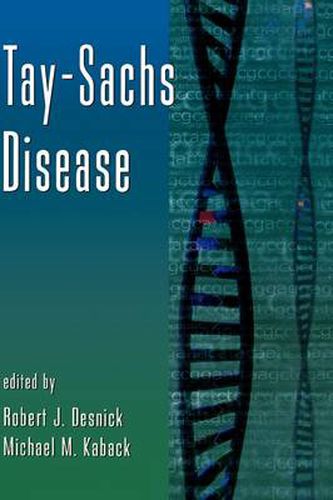Readings Newsletter
Become a Readings Member to make your shopping experience even easier.
Sign in or sign up for free!
You’re not far away from qualifying for FREE standard shipping within Australia
You’ve qualified for FREE standard shipping within Australia
The cart is loading…






Tay-Sachs disease is a rare hereditary disease caused by a genetic mutation that leaves the body unable to produce an enzyme necessary for fat metabolism in nerve cells, producing central nervous system degeneration. In infants, it is characterized by progressive mental deterioration, blindness, paralysis, epileptic seizures, and death by age four. Adult-onset Tay-Sachs occurs in persons who have a genetic mutation that is similar but allows some production of the missing enzyme. There is no treatment for Tay-Sachs. A test to determine whether an infant is carrying the Tay-Sachs disease was introduced in 1969. However, work continues to be done to help find a cure. Because there is no cure for this deadly disease, genetic research is essential. Advances in Genetics presents an eclectic mix of articles of use to all human and molecular geneticists. They are written and edited by recognized leaders in the field and make this an essential series of books for anyone in the genetics field.
$9.00 standard shipping within Australia
FREE standard shipping within Australia for orders over $100.00
Express & International shipping calculated at checkout
Tay-Sachs disease is a rare hereditary disease caused by a genetic mutation that leaves the body unable to produce an enzyme necessary for fat metabolism in nerve cells, producing central nervous system degeneration. In infants, it is characterized by progressive mental deterioration, blindness, paralysis, epileptic seizures, and death by age four. Adult-onset Tay-Sachs occurs in persons who have a genetic mutation that is similar but allows some production of the missing enzyme. There is no treatment for Tay-Sachs. A test to determine whether an infant is carrying the Tay-Sachs disease was introduced in 1969. However, work continues to be done to help find a cure. Because there is no cure for this deadly disease, genetic research is essential. Advances in Genetics presents an eclectic mix of articles of use to all human and molecular geneticists. They are written and edited by recognized leaders in the field and make this an essential series of books for anyone in the genetics field.